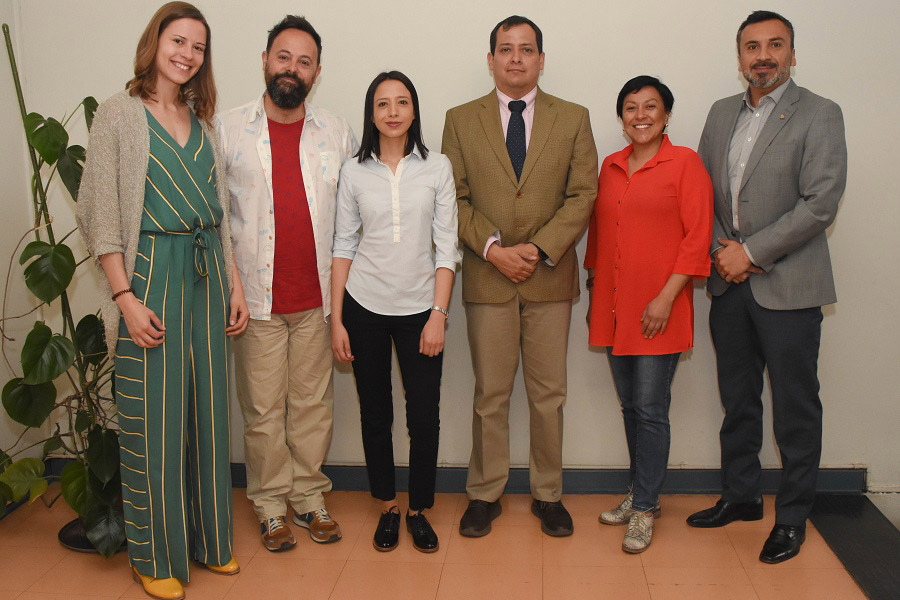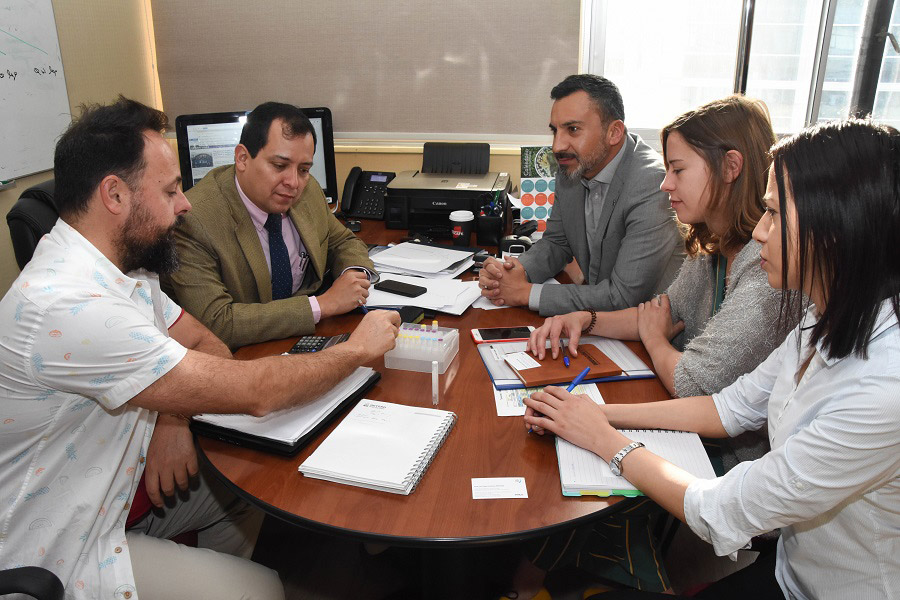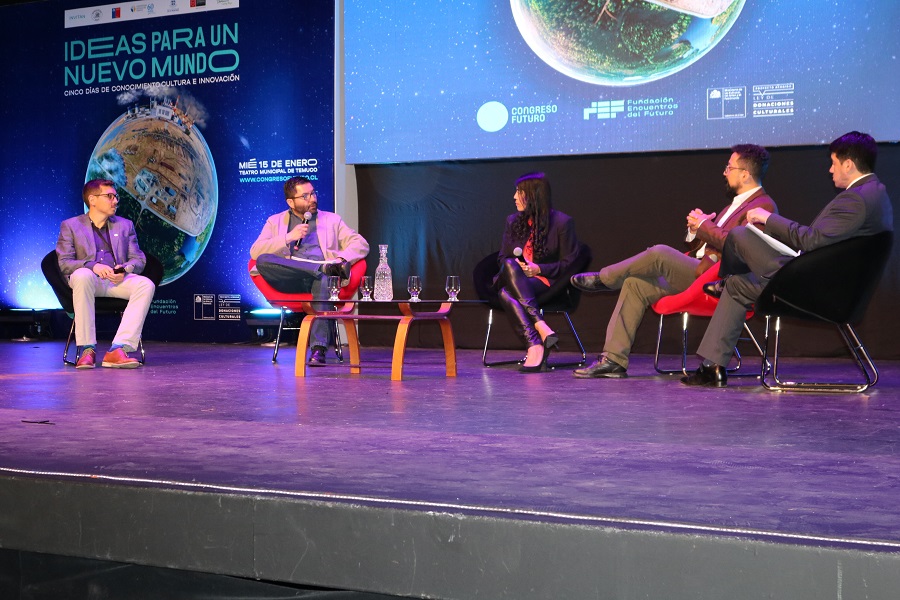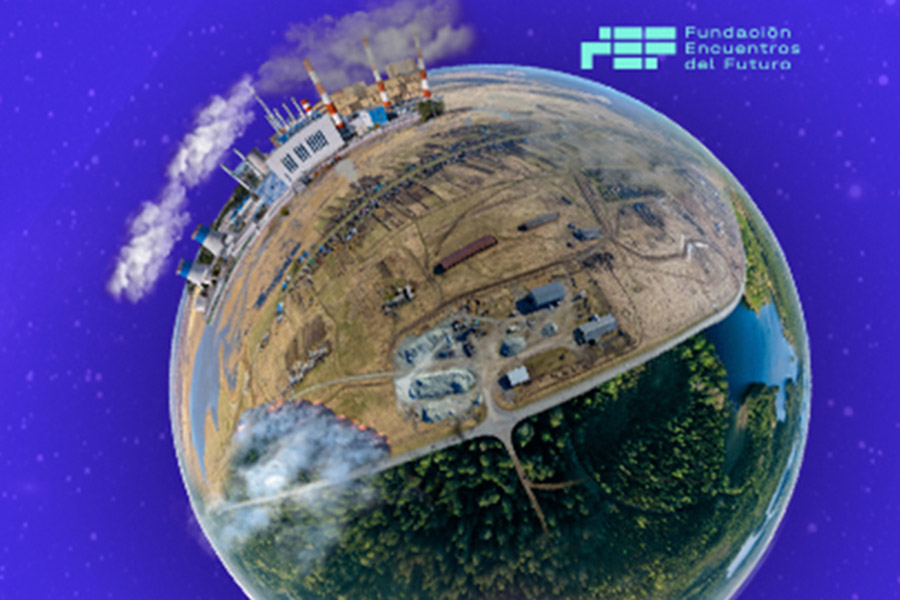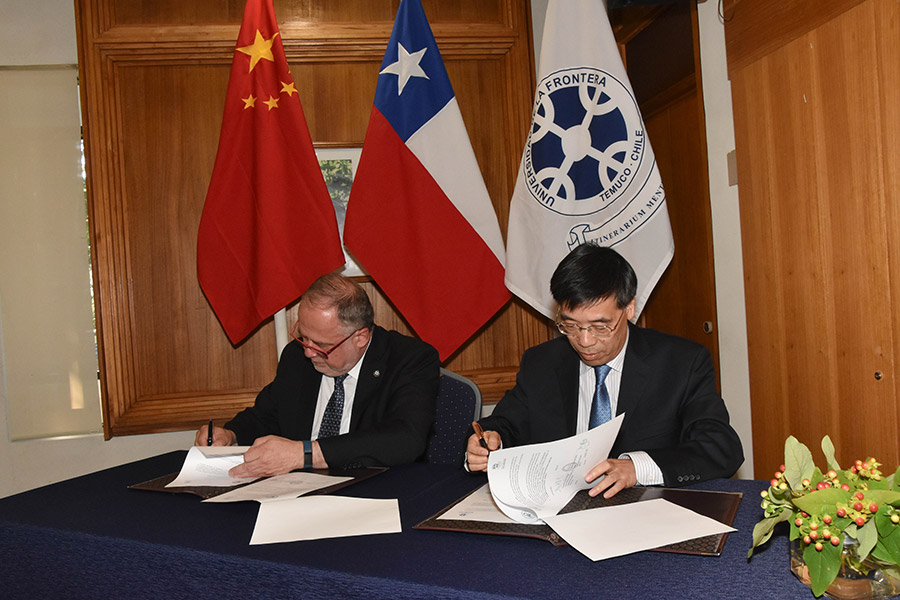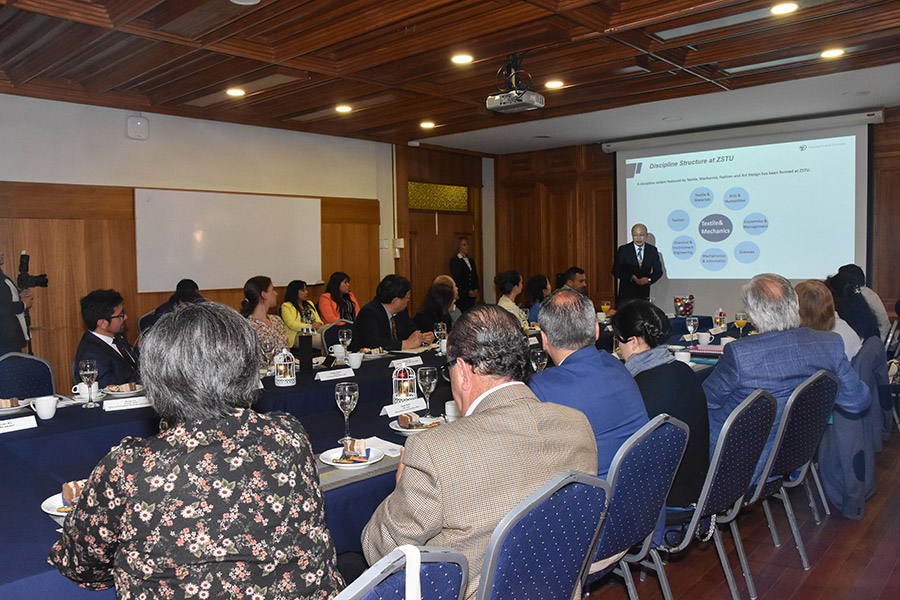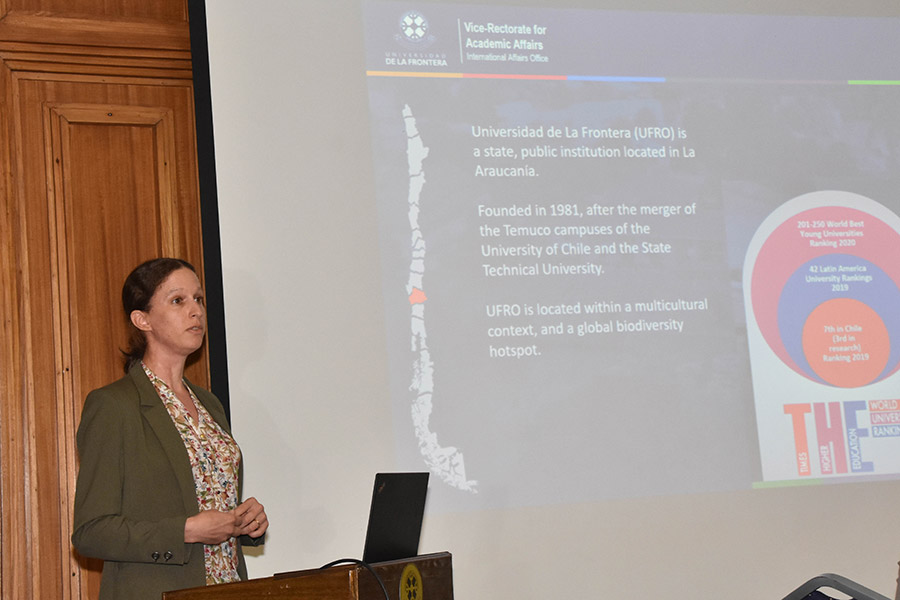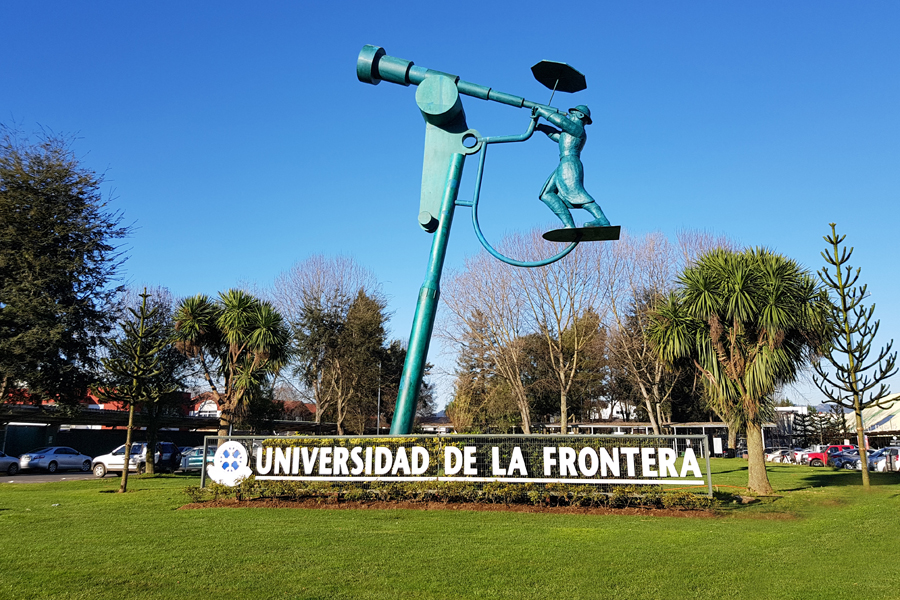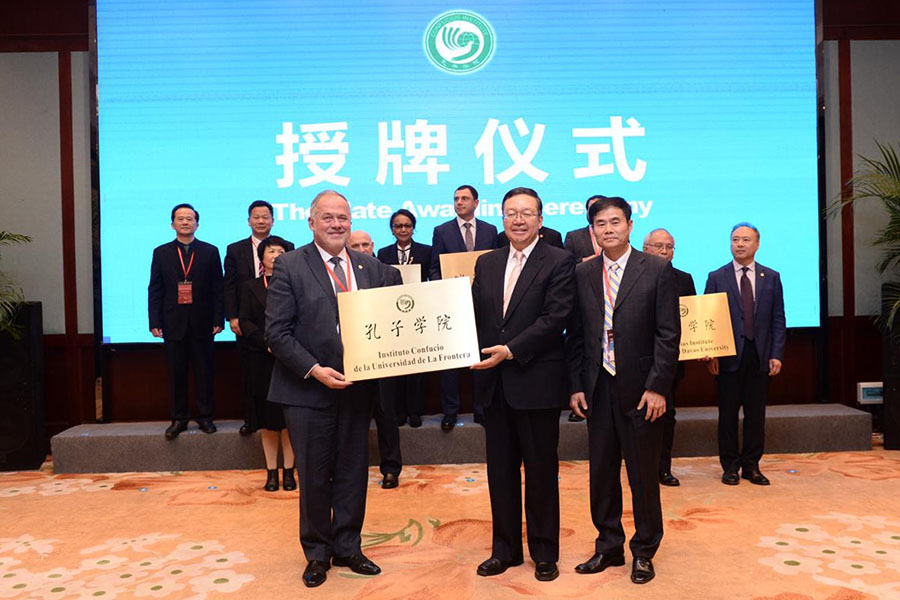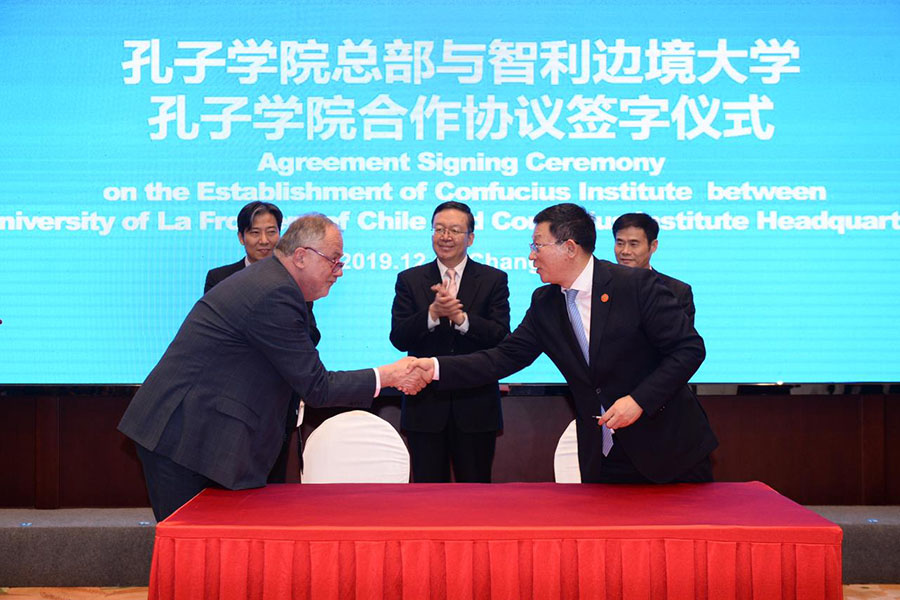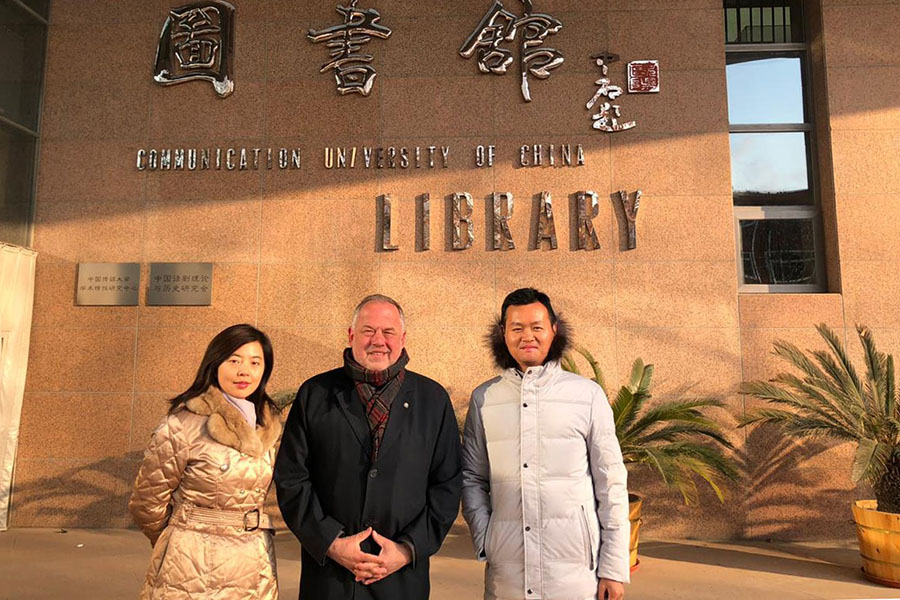|
This project is financed by the European Union and will allow to improve the precision in the assessment of risk and early detection of gallbladder cancer. |
“Gallbladder cancer is the second cause of death in Chilean women and the regions Los Ríos and La Araucanía are the ones with the highest prevalence in Chile,” said the physician Héctor Losada, who is a researcher who leads a project at the Universidad de La Frontera (UFRO) that will create a consortium for European-Latin American research for the eradication of this disease. This mega project is financed by the Program Horizon 2020 of the European Union and is led by Heidelberg University in Germany, together with the Universidad de La Frontera and counts with the participation of 12 research centers in Europe and Latin America, with the objective of improving the precision of risk assessment and early detection of this kind of cancer, identifying and considering geographic, environmental, lifestyle, ethnic, gender and molecular differences adequately. Dr. Justo Bermejo, the leader of the Group for Genetic Statistics of the Faculty of Medicine of Heidelberg University, affirmed that gallbladder cancer is not easy to detect. “The proof is that each year, 1,100 Chilean women and 500 men die from this disease. At present, a measure of prevention is to remove the gallbladder, but the objective of this project is to refine this preventive strategy, to identify biomarkers in the blood, which, at the same time, allow to identify individuals at high risk of developing gallbladder cancer,” he explains. The specialist pointed out that it has been shown that genetic ancestry is an important factor in order to detect gallbladder cancer potential. “The Chilean People are a mix of Europeans, Mapuche people and Aymara people. We already found out that Mapuche descendants have an increased risk of developing this disease.” The UFRO researcher Héctor Losada added: “The project functionally identifies, validates and characterizes new cancer biomarkers, developing a multifactorial risk score that integrates and establishes epidemical and molecular risk elements that have recently been identified. This way, the existing epidemiologic data can be exploited.” The generated information will allow to identify individuals at high risk, and can guide them through processes of monitoring and individual decision-making regarding the possible preventive gallbladder removal in regions of low and high cancer prevalence. This will also be the first step for the implementation of future clinical trials. INTERNATIONALIZATION OF UFRO RESEARCH The Director of Innovation at UFRO, Franklin Valdebenito Godoy, pointed out that the internationalization of research capacities is key nowadays, especially in fields of high impact within the global population. “We are creating links with research centers that are international benchmarkers, what has been a priority axis in innovation at UFRO. Through the Program “Connecting”, we were able to become a leader regarding the number of important projects awarded, for example by Horizon 2020, thanks to the capabilities and skills of our team and researchers.” It is worth mentioning that the Universidad de La Frontera has extensive experience in research on gallbladder cancer, which can mainly be found in patients aged 35-40.
Written by: Francisca Collao Kehr
UFRO Office of Innovation |
|
The event will take place on January 15 at the Municipal Theatre of Temuco, with the support of the regional Intendancy of the La Araucanía Region and the Universities Católica de Temuco, Autónoma de Chile and Universidad de La Frontera. |
This year’s version of the Congress of the Future (“Congreso Futuro Araucanía 2020”) in the La Araucanía Region is going to take place under the title “Ideas for a new world” and is one of the biggest events for knowledge, science and art in South America. The initiative is led by the Committee for Challenges of the Future, Science, Technology and Innovation of the Senate and the Foundation Encounters for Future. It is the ninth version of the congress held from January 13 to 17. In the La Araucanía Region the event takes place at the Municipal Theatre of Temuco on January 15. The Congress is supported and coordinated by the regional Intendancy of the La Araucanía Region and the Universities Universidad Católica de Temuco, Universidad Autónoma de Chile and Universidad de La Frontera and provides a space for debate on the urgent necessity of more and improved science, technology and ideas in Chile that allow us to create the country we want to live in. Since its first version, the Congress of the Future brought outstanding national and international thinkers, scientists and researchers together and invites the civil society to think about the future of our civilization and the impact current scientific, social and cultural progress has our daily life. “This is a great opportunity for La Araucanía and in this regard this congress will allow us to have a valuable space to scientifically rethink our region and to visualize the way we can contribute with our knowledge and our researchers and scientists to the concrete development of our region in different areas, such as agriculture, fruit growing, biomedical sciences, social science, etc.”, Dr. Eduardo Hebel, the rector of UFRO, explained. The university authority appreciates the joint work of the three participating universities in the region and pointed out that, this way, the potential of science will get reflected in the development of each of the questions asked in the different fields that will be discussed, such as renewable energies and water shortage, amongst others. “I want to thank the three rectors for their participation in this important event. The commitment of our universities is extremely important for the regional development. This is an historic opportunity to show the potential of our region to the country and the world, that we are full of opportunities,” Victor Manoli, the regional intendant of La Araucanía, pointed out. INTERNATIONAL EXPERTS It is the third time that the La Araucanía Region is part of the event. This year, three speakers are going to participate. One of them is John Cryan, PhD. in pharmacology and professor and chair of the Department of Anatomy and Neuroscience at University College Cork, Ireland, where he works as a researcher at the Alimentary Pharmabiotic Centre’s Microbiome Institute. Another speaker is Joaquín Fargas, an industrial engineer, art director of the Bioart Laboratory and professor of technological art at Maimónides University in Buenos Aires, Argentina. And the third speaker is Ximena Hartsock, graduate in Middle Eastern and Islamic studies, and president and co-founder of Phone2Action. The constant growth of the Congress of the Future and the series of meetings with citizens that are taking place are possible thanks to a decision the Chilean Congress made in 2010 – within the bicentenary of the country’s independence – in order to connect the society with the challenges of the 21st century and, this way, to contribute to the democratization of the scopes and problems it would bring. The attendance at the congress is free of charge and you can pre-register under the following link: http://congresodelfuturo.cl/araucania/ and VIEW THE PROGRAM HERE.
Written by: UFRO Communications Office
|
|
With the signing of this agreement the UFRO is becoming the only strategic partner in Latin America of that university and the first Chilean institution for higher education to sign an agreement of academic cooperation with multiple projections with them. |
The Universidad de La Frontera (UFRO) is taking important steps towards internationalization. It has signed a new agreement with the Chinese Zhejiang University of Science and Technology. The agreement supports the links with the Asian country and is a recognition of mutual knowledge. A delegation composed by Fengmin Wu, the Council of Zhejiang Sci-Tech University (ZSTU), academic representatives and Xu Bu, the ambassador of the People’s Republic of China in Chile were present, together with the university president Dr. Eduardo Hebel, the vice-rectors, deans and directors of the nuclei, in order to make this milestone regarding international relations a reality. With the signing of this agreement the UFRO is becoming the only strategic partner of that university in Latin America and is the first Chilean institution for higher education to sign an agreement of academic cooperation with them. “Chile and China maintain good relations, a close friendship, and the signing of this agreement allows us to move forward regarding new cooperation strategies,” the authority of ZSTU said. Dr. Eduardo Hebel appreciates the link with this institution which is located in one of the most powerful regions in the world and which achieved a great development in the areas of teaching, education, science and technology. “This is one of the most important agreements we were able to concretize in the field of internationalization of the UFRO, not only because of the possibilities this implies regarding our academic activities, but also because of what this contributes to the Araucanía Region.” IMPULSE One of the benefits an international cooperation agreement offers is the possibility of doing student exchange, joint research and academic collaboration. This is also why the UFRO university community is very satisfied and motivated by this achievement. This agreement, which has just been signed, starts with the granting of two fully-funded scholarships for the UFRO, so the undergraduate and graduate students can study in Hangzhou or Anji during the second semester of 2020. For Dr. Lorena Vieli, the director of the International Affairs Office of the Universidad de La Frontera, this is a great achievement regarding the relations with Asia, and in this case China. “Our universities have common fields of interest and the announced scholarships will allow us to start with the first actions resulting from the agreement,” the university authority said. Zhejiang Sci-Tech University (ZSTU) is a multidisciplinary university with an emphasis on engineering and disciplines incorporated in science, fine arts, economics, administration and education. It combines the successful administration experience of the German universities for practical science with own experiences and explores ways to nurture international talents with innovative spirit and solid skills. The university has two campuses. The Xiaoheshan Campus is located in Hangzhou, a historical city full of culture and the capital city of Zhejiang, which is one of the most prosperous provinces in China. The other campus is located in Anji, in Anji County, and has been awarded with the UN-Habitat Scroll of Honour. Written by: UFRO Communications Office
|
|
At the Universidad de La Frontera the year 2019 was marked by high scientific productivity and an increase in the number of awarded projects financed by external funds. The UFRO is recognized as one of the best complex universities in Chile. |
It was a year of excellent results. 2019 culminates for the Universidad de La Frontera (UFRO) with 13 Regular Fondecyt (Chilean National Fund for Scientific and Technological Development) and 16 Postdoctoral Fondecyt Projects awarded. Among the regional public and state universities, this is a privileged position with important achievements that turn the UFRO into one of the most prestigious complex universities in Chile. For the Vice-rector for Research and Graduate Studies, Dr. Renato Hunter Alarcón, this result is one of the products of the commitment and dedication of the academics of this educational institution and the actions implemented during the last year in order to progress in terms of scientific productivity and awarded projects with priority research lines for the Araucanía Region and Chile. “We achieved to improve our indicators of scientific productivity and the number of awarded projects compared to 2018, what makes us proud and puts us into an excellent position among Chilean research universities. Thanks to the hard work and dedication of our researchers and academic staff, we are one of the regional universities with most awarded Fondecyt Projects,” said the university authority and added that the year 2019 culminated for the UFRO as a solid year regarding research and graduate studies, “taking into account that we also achieved to accredit 100% of our doctoral programs.” The research director, Dr. César Arriagada Escamilla, takes this achievement as a motivation to keep improving in 2020. “We will stay on our path and keep trying to increase the number of awarded projects. In this case the number of awarded Regular Fondecyt projects increased from 12 to 13 and the number of Postdoctoral Fondecyt projects increased from 5 to 16 awarded projects this year.” Besides, this year the number of ISI-WoS publications reached an historical number of 550 publications during 2019. The university authorities complimented the researchers and academic staff who made this important result possible. The winners in the Regular Fondecyt project competition are the doctors León Bravo Ramírez, Marcela Calabi Floody, Ángel Carocca Becerra, Paula Cartes Indo, Mara Cea Lemus, Paola Durán Cuevas, Ricardo Felmer Dorner, Germán Gálvez García, Milko Jorquera Tapia, Pamela Leal Rojas, Pablo Meza Narváez, Mónica Rubilar Díaz, and Carolina Shene de Vidts. The winners in the Postdoctoral Fondecyt project competition are the doctors Daniel Basualto Alarcón, Fernanda Cid Alda, Hannah Demond, Fabián Dietrich, Jorge González Villagra, Héctor Herrera Echeverría, Montserrat Hevia Hoffmann, Ignacio Jofré Fernandez, Emilio Navarrete Sanhueza, Javiera Parada Cárcamo, Sofía Pontigo Seguel, Krishnendu Pramanik, Marcela Quilaqueo Gutiérrez, Carlos Reyes Velásquez, Alejandro Salinas Vaccaro, and Rubén Sánchez Sabate. Written by: Vice-rectorate for Research and Graduate Studies
|
|
This new agreement with China converts the Universidad de La Frontera into the third university in Chile that will have a Confucius Institute, which is internationally recognized for the dissemination of the Chinese language and culture. In this context, the Chinese ambassador Xu Bu will be at the UFRO during this week for several activities. |
This is an important step forward regarding internationalization that will convert the Universidad de La Frontera (UFRO) into the third university in Chile that will have a Confucius Institute. Amongst others, this achievement was possible thanks to the good relations with the People’s Republic of China. The Confucius Institute has global presence and its objectives are the dissemination of the Chinese language and culture, the contribution regarding the development of partnerships in the academic field, as well as being a role model regarding international relations. This achievement was possible thanks to an important agreement of international cooperation signed by Dr. Eduardo Hebel, the university president of the Universidad de La Frontera, during his recent visit in China, where he carried out a series of activities with the aim of strengthening the university’s international networks. The agreement was signed with the General Office of the Confucius Institute (Hanban) – from where the Institute, which is present in 180 different countries, is managed – with the support of the Ministry of Education of the People’s Republic of China and the Communication University of China (CUC) as a counterpart. According to Dr. Hebel, “this is one of our most important agreements in the area of internationalization of the UFRO, not only because of the possibilities the academic and cultural activities of the institute imply, but also because we believe that this is an important step for our region, regarding the role of China in the world today.” This important milestone for the international relations of the Universidad de La Frontera has been achieved with the commitment and management of the UFRO Office of Outreach and Community Engagement, which together with the International Affairs Office will assume the institutional responsibility of carrying out the establishment of the Institute. OFFICIAL VISIT One of the concrete actions of this new alliance is that the Chinese ambassador in Chile, Xu Bu, will visit the UFRO and participate in a series of meetings in order to activate the opportunities that come up from bilateral relations, and to initiate the coordination the establishment of the Institute implies. This will be the second visit of the ambassador at the Universidad de La Frontera. His first visit was in April 2019.
Written by: UFRO Communications Office
|





